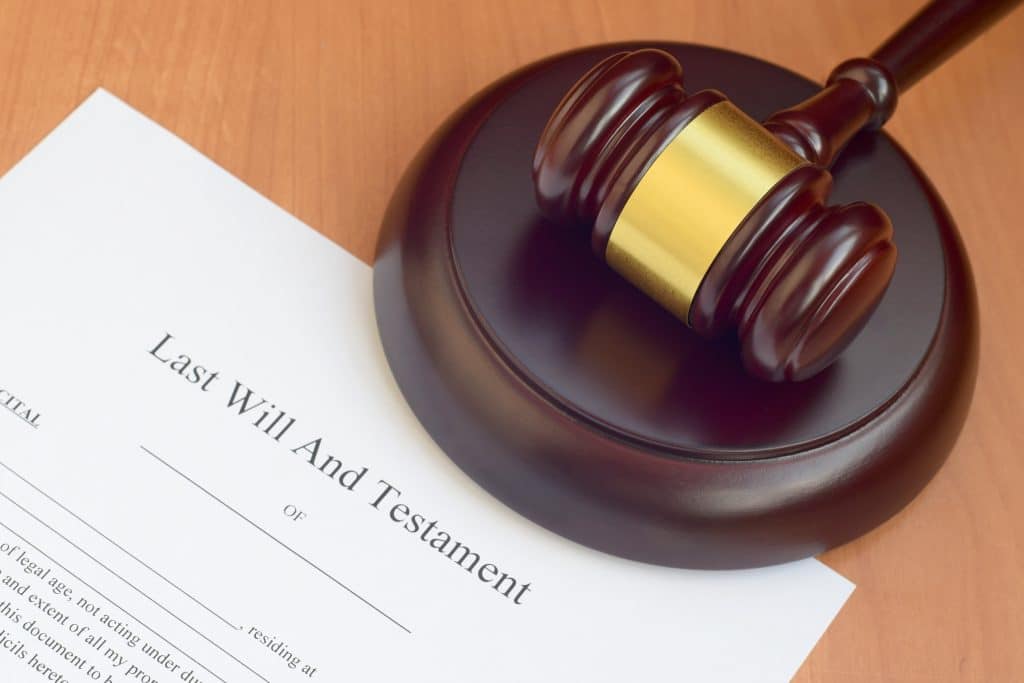
How can Freeman Jones inheritance solicitors help?
At Freeman Jones Solicitors, our inheritance dispute solicitors provide comprehensive probate administration services to help resolve a variety of inheritance disputes. Our team also make sure all inheritance legal requirements are taken care of and any potential issues and disputes are carefully handled.
By adopting a sensitive approach to handling inheritance disputes, we can work effectively with the executors, creditors, and beneficiaries of a will. We treat everyone fairly to ensure the wishes of the deceased are carried out exactly as stated in their will. Our areas of expertise include:
- Claims under the Inheritance (Provision for Family And Dependants) Act 1975
- Handling will disputes with executors
- Resolving will disputes between beneficiaries
- Providing support with promissory estoppel claims
- Providing help with proprietary estoppel claims
- Defending contested wills
- Settling disputes around invalid wills and wills with errors
- Understanding the risks associated with claiming
Making a claim under the Inheritance Act 1975
Inheritance disputes happen more frequently than is realised, with disputes occurring for a wide range of different reasons.
For example, if a family member or loved one has passed away and your gift in their will is not what you anticipated, our inheritance dispute solicitors may be able to challenge the will on your behalf.
Likewise, if you believe the will is invalid or you or someone else has been unfairly excluded, then we may be able to help by making a claim for reasonable financial provision under the Inheritance Act 1975.
You can reject the validity of a will on various grounds. This includes challenging the mental capacity or testamentary capacity of the deceased when the will was made as well as challenging how the will was interpreted or executed.
The validity of the will can also be challenged if there was another estate-related agreement made prior to the deceased’s passing. Persons entitled to make a claim under the Inheritance Act 1975 include:
- A spouse or civil partner of the deceased
- A former spouse or former civil partner of the deceased, but not one who has formed a subsequent marriage or civil partnership
- Any person who lived with the deceased for a minimum period of two years prior to their death
- A child of the deceased (even if over the age of 18)
- Anyone (not being a child of the deceased) who was treated as a child of the family, including adopted children, fostered children, stepchildren etc.
- Any person not mentioned above who immediately before the death of the deceased was being maintained either wholly or partly, by the deceased
Concerned about making a claim? The knowledgeable team of inheritance dispute solicitors at Freeman Jones can explain the various risks related to challenging a will in plain English instead of complex legal jargon, helping you to make a more informed decision.
Searching for an inheritance solicitor in Chester?
Searching for an inheritance solicitor in Chester?
Fed up with finding inexperienced or expensive solicitors when you search online for ‘inheritance solicitors near me’?
If you’ve been looking online for understanding, friendly, and specialised ‘inheritance dispute solicitors near me’, then look no further than Freeman Jones.
Our team of experienced inheritance dispute solicitors have helped countless clients across the North West of the UK to amicably resolve a wide range of inheritance disputes – no matter how niche the dispute might be.
Alongside our inheritance dispute and mediation services, we also offer expert support with wills and probate including contesting a will, intestacy rules, and lasting power of attorney.
Regardless of whether you want to learn more about how inheritance works or you’re concerned about increasing family tensions regarding a recently deceased person’s will, please feel free to contact our knowledgeable team today.
To make discussing your requirements with a member of our team even easier, we’ve opened a number of offices across the UK including in key locations like Chester, Liverpool, Warrington, and Wrexham to help us support as many clients as possible.
Alternatively, you can always give us a call on 01244 506 444 to find out more about our inheritance dispute services and fees.
You can also get in touch by emailing your enquiry to info@fjsolicitors.co.uk or using our online contact form to schedule your free, no-obligation, 20-minute consultation.
Inheritance Dispute FAQ's
-
Yes, inheritance disputes are becoming more and more common in the UK and there are many reasons that an individual might choose to dispute a will. For example, they might question the validity of the will or hold the belief that it wasn’t executed properly.
-
In many cases, we aim to resolve disputes as amicably and sensitively as possible by means of mediation and negotiation. In some cases, court proceedings may need to be explored, but it’s uncommon for inheritance disputes to escalate to this point.
-
Losing someone you love is one of the most challenging events in anyone’s life. If you subsequently come to believe that their estate is being mismanaged, it can be highly distressing and can make the grieving process even harder.
The executor is the person named in the will who is liable for the administration of that will according to the wishes of the deceased.
They have a range of responsibilities including collecting the deceased’s assets, paying outstanding debts, preparing accounts detailing the assets and liabilities of the estate, paying Inheritance Tax, and distributing remaining assets to the beneficiaries.
If you believe that the executor is failing in their duty to properly carry out these tasks, then you may be able to make a claim against them.
You can also apply to the court to have them replaced. Specialist probate and estate administration solicitors may then be asked to take over the administration of the estate in these particular circumstances.
-
Yes, in some cases an executor can refuse to pay a beneficiary, for example, if the beneficiary is bankrupt. In many cases, an executor will only withhold paying a beneficiary until they’re sure that the deceased’s debts have been fully satisfied.
-
Executors are required to administer the estate correctly and are personally liable if they make any mistakes. In practice, this means that they may be sued if they make any serious errors.
This might include not looking after assets properly, making poor investment decisions, misinterpreting the will, overpaying a beneficiary and leaving others out of pocket, or distributing money to the beneficiaries before creditors have been paid in full.
Executors may find themselves put under pressure by beneficiaries to distribute assets early. This can lead to serious problems and complications further down the line if there are any outstanding debts.
Often, there may be debts that the executor isn’t aware of initially. Sometimes a claim may be made by someone disputing the will. These situations can lead to difficulties further down the line and, in some cases, may even lead to prosecution against the executor.
For these reasons, it’s generally safer for an executor to instruct a specialist probate and estate administration service to obtain probate and administer the estate. This will ensure that you are protected against being sued personally for negligence.
-
There is a range of options available when it comes to administering the estate of a deceased person. Using specialist probate and estate administration solicitor is just one of those options, but it has a range of distinct advantages.
Firstly, it frees the executors from having the stress and hassle of taking care of what can be a complicated process themselves. This can help to reduce family tensions and allow family members and loved ones to grieve without worrying about inheritance disputes.
It also tackles any potential issues, ensures that all of the legal requirements are met, and provides a comprehensive set of services. Everything is taken care of.
While there are no legal requirements for executors to use probate administration, there are some instances where it is not only desirable but also strongly advised. These includes when:
- The estate’s value is over the Inheritance Tax threshold and the estate is still earning income. This may then create complicated tax requirements that need to be met – the current threshold for Inheritance Tax is £325,000 (2022/23)
- The deceased died without a valid will and the estate is complicated
- There are doubts about the validity of the will
- Dependents were deliberately left out of the will, and they may wish to make a claim on the estate
- There are complex arrangements such as assets held in trust that are part of the estate
- The estate is insolvent
- Foreign property or assets are included in the estate
- The deceased lived outside of the UK for tax purposes
-
A will can be contested for a number of reasons including if:
- The will hasn’t been executed properly
- The deceased lacked testamentary capacity at the time of writing the will
- The deceased didn’t understand or have knowledge of the contents of the will
- The deceased was subjected to undue influence when writing the will
- An error was made in the will
- Fraud or forgery is suspected
-
To make a claim under the Inheritance Act 1975, you will need to act within six months of the Grant of Probate or the Grant of Letters of Administration. However, if there is an acceptable reason for the delay in making your claim, you may be able to make a claim after this period.
On the other hand, if you’re concerned about the validity of the will or want to contest the will, then you’ll typically have 12 years from the date of the deceased’s passing to contest the will. In some cases where you suspect fraud or forgery to have impacted the will, there will be no time limit.
Generally, it’s always best to act as soon as possible regardless of whether you’re concerned about the will or inheritance disputes.
-
If you believe that you can make a claim under the Inheritance Act 1975, then it’s crucial that you seek legal advice from a relevant solicitor as soon as possible.
At Freeman Jones Solicitors, we offer free, no-obligation, 20-minute consultations, so why not get in touch today to discuss your claim in more detail with one of our experienced inheritance dispute solicitors?
Inheritance Dispute Specialists
Our Inheritance Dispute Solicitors can help with all of the following Will, Trust and Inheritance disputes that may arise:
- Inheritance Act claims for reasonable provision under the Inheritance (Provision for Family and dependents) Act 1975 (IPFDA claims);
- Interpretation of Wills, Trusts and administration of Estates.
- Disputed Wills.
- Fraudulent Wills or when the requisite formalities have not been adhered to and followed.
- Rectification of Wills.
- Invalid wills (challenging wills due to lack of capacity and undue influence claims).
- Domicile disputes.
- Disputes over assets.
- Estate administration disputes.
- Caveats, warnings & appearances.
- Contested Court of Protection proceedings.
- Burial disputes.
- Disputes over beneficiaries’
- Disputes over Powers of Attorney.
- Breach of Trust claims.
- Wills, Trusts and Estates Professional negligence claims against solicitors and Will writers concerning negligently drafted wills.
- Removing executors, administrators or trustees.
- Misappropriation of Trust or Estate property.
- Assets freezing injunctions.
- Trust claims.
We can provide help to disappointed beneficiaries, executors, administrators, personal representatives, trustees or any other party involved.
If you are involved in a dispute relating to a Will, trust or estate, seeking early expert legal advice can potentially avoid costly disputes including inheritance dispute court proceedings.
Alternative Dispute Resolution
Alternative Dispute Resolution (ADR) can be used to resolve disputes surrounding wills. It refers to a number of methods that are used to resolve disputes without the need for litigation. Parties will choose the most appropriate method of ADR for their particular dispute and may use different methods before an agreement is reached.
The most commonly used methods are:
-
Mediation brings the parties to the dispute together with an independent and impartial mediator. They will facilitate discussion between the parties and assist them in reaching a settlement. This is more flexible than court proceedings and the resolutions that can be reached are wider than those that a court can enforce. For instance, mediation can allow the parties to discuss individual assets of a deceased’s estate. These may not have particular monetary value but have significant sentimental value to the parties.
Mediation is entirely confidential and also non-binding. This means that if the parties are unable to reach an agreement they may still take the matter to court. Mediation isn’t always suitable, particularly if a matter of law is in dispute. There are no guarantees that a settlement will be reached.
-
Early Neutral Evaluation involves an impartial evaluator assessing the merits of a case and then expressing their view. This can be useful in helping parties identify weaknesses in their case and any gaps in their evidence. It can be particularly useful when parties have reached an impasse or if there is a significant disparity between their respective positions.
If an evaluator reaches a strong conclusion, this can prompt the parties to enter into more serious settlement discussions. It’s important to remember, however, that an evaluator’s view is not a judgment and isn’t binding. Early Neutral Evaluation may not itself resolve a dispute.
-
Arbitration is the most formal form of alternative dispute resolution. Each party presents their argument and evidence to the arbitrator. They will then reach a decision on the outcome of the dispute. This process will be governed by an arbitration agreement that the parties can tailor to their dispute. The parties can choose their arbitrator and the tribunal is private.
The decision that’s reached can be binding or non-binding, with the former bringing the dispute to a conclusion. If the parties choose arbitration they will not then be able to bring their dispute to court.
Professional probate and estate administration services
At Freeman Jones Solicitors, we take the stress out of administering the estate of a deceased loved one. Our specialist probate and estate administration services can ensure that all of the legal requirements are met and beneficiaries receive their assets in as timely a manner as possible.
We can also help resolve disputes and challenge instances where an Executor is failing to carry out their legal responsibilities adequately.
Why not call our experienced team today for confidential probate advice?
Call 01244 506 444 or book your Free 30 Minute Consultation online.

Book Your Free, No-Obligation 20-Minute Consultation Today!
"*" indicates required fields


